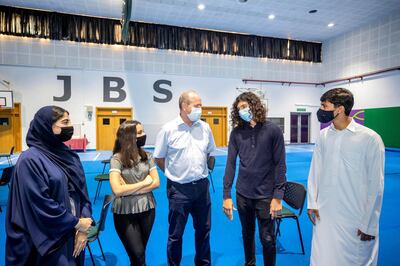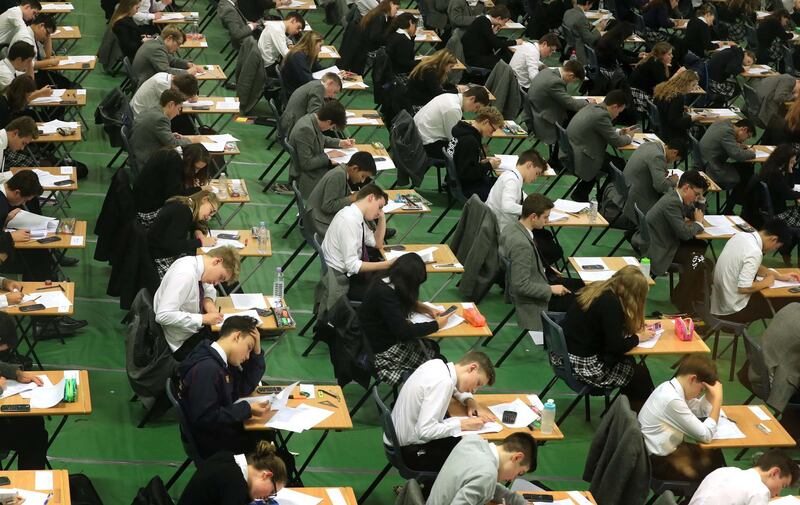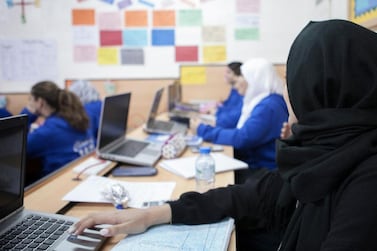International Baccalaureate Organisation has defended itself against claims that it unfairly graded pupils this year after tens of thousands complained about their end-of-year results.
Pupils and schools around the world critiqued the organisation for its lack of transparency regarding its awarding model this year with many claiming an algorithm that missed the mark was used to predict grades.
After exams were cancelled due to the coronavirus outbreak, the organisation said pupils would be assessed based on their coursework, internal exams and predicted grades.
IB Diploma and Career-related programme results were released to more than 170,000 pupils on July 6, prompting almost 22,000 pupils to dispute their grades in an online petition that claimed they were an unfair reflection of their performance.
The number of pupils in Hong Kong awarded perfect scores dropped by almost a third this year, The South China Morning Post reported. Similarly, Indian media reported that thousands of pupils scored lower grades than expected.
The UK’s Office of Qualifications and Examinations Regulation said it would examine the IB's grading process after pupils complained there too.
The IBO has since clarified that no algorithm was used in the absence of examinations this year.
“We hear the anxiety around the May 2020 results. The emotional well-being of our pupils and our community is paramount in our decision making and remains the highest priority. Grades were awarded for the May 2020 session through an IB awarding model, not a computer-based algorithm,” the organisation said.
How did IBO calculate grades this year?
The awarding model was based on three components.
The first was pupils’ coursework, which is used as part of the awarding system every year. IB advocates that some learning objectives are best assessed through extended tasks undertaken at the pupil's own pace and ideally marked by the teacher who observes them during this time.
"Examining all student work, rather than only moderating, aims to maximise the confidence that every student will receive a fair mark overall," the IBO said.
The second component was to factor in predicted school grades for each pupil in each subject.
This is not always an accurate way to assess a pupil’s performance as 55 per cent typically achieve a grade different to what was predicted by their teacher.
The third assessment factor was to take into account the school context. The IBO used historical data to model the predicted grade accuracy, as well as the record of the school to do better or worse on examinations compared with coursework.

Why are pupils upset?
More than 21,000 pupils have signed a petition asking for transparency, free remarking, and for pupils to be allowed to sit IB examinations free of charge.
"We need transparency, we need an explanation, a demand for universities to consider leniency, free remarks, free retakes, and most importantly, a public statement from you that tackles the situation and provides clarity for everybody affected … We want universities to admit us based on our coursework which outlines our capabilities in analytical, practical, and theoretical work rather than your skewed assessment of what your AI assumes our capabilities are," the petition read.
"So far, what we've seen is a great deal of injustice; many students around the world received significantly lower final grades than what they were predicted … Too many of us have failed, lost scholarships, and denied positions in top universities for this to be OK and a 'fair and robust grading method'."
Last week The National reported that thousands of International Baccalaureate pupils asked their results to be reassessed after receiving scores far below their predicted grades.
Numerous petitions are being circulated among pupils worldwide calling on the IBO to revaluate results free of charge.
What are the options for pupils who are unhappy with their grades?
IBO has introduced a process to review extraordinary cases and will prioritise pupils who need support with university admissions.
The organisation said it cannot guarantee higher grades as a result of the review but results that are deemed reasonable will not go down.
The awarding body has identified three priority areas for this review: candidate level discrepancy, subject level discrepancy, whole cohort discrepancy.
Pupils have been asked to work directly with their school co-ordinators to address concerns.

What is the situation in the UAE?
The exact number of pupils who take IB in the UAE is not known but is understood to be around 2,000. At least 48 schools offer the curriculum. It is unclear how many pupils in the UAE have asked their results to be reviewed.
However, UAE pupils achieved results higher than the global average with some even earning a perfect score.
Hundreds of teenagers across the Emirates earned an average of 32.80 point, from the maximum of 45. Globally, the average was 29.90.
The pass rate in the UAE was 93.77 per cent.
Fiona McKenzie, head of Carfax Education in Dubai, said there had only been a few pupils predicted higher grades but achieved lower than expected.
“There are individual outliers who have grades that do not correlate with their predicted grades.
“This is a new system for everyone including the board and we may have the same issues around the A-levels and the GCSEs. It’s an untried system at the moment.
“The children who are potentially disadvantaged are the ones who put in a lot of effort at the end who really achieve their potential in the final exams.”








